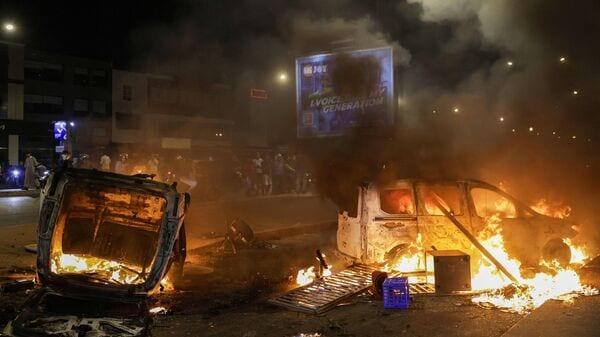
Genz 212 Protests In Morocco: Over 2,400 Face Prosecution After Protests Calling For 'Better Education, Healthcare'
Over 1,400 were already in detention, Hassan Farhan, a judge and senior judicial official at the public prosecutor's office, said in a press conference and of the 2,480 defendants, about a fifth were charged with“rebellion as part of a group.”
Dozens of individuals have been charged with offenses including“assaulting law enforcement officers” and“incitement to commit crimes and participation in armed gatherings,” Farhan said.
As many as 411 people, including 76 minors, have been convicted of the said crimes, the prosecutor's office added, and more than 60 persons have been sentenced to jail terms of up to 15 years. The charges mainly include vandalism, looting, or arson.
Violent clashes broke out between GenZ protesters and security forces in Morocco as the demonstrators demanded a corruptionless society – echoing similar youth-led protests in Nepal, where young people took to the streets calling for transparency and accountability in governance.
Cars and banks were set ablaze, and protesters also allegedly pelted stones at the forces. They were organised on social media by a youth group called GenZ 212.
The group organised a series of demonstrations seeking reforms in the health and education sectors, as well as“an end to corruption”.
In the initial days of the protests, when the gatherings were banned, police made hundreds of arrests.
Two nights were marked by violence, including in Agadir, where three people were killed in clashe, though organisers insisted on their commitment to nonviolent protest.
Last week, the Moroccan Association for Human Rights (AMDH) called for "fair trials" for all defendants and denounced what it described as "police reports written under duress".
Farhan said that "all conditions for fair trials" had been guaranteed, adding that the police records were all drawn up in accordance with the Moroccan law.
For two weeks, the demonstrations were held on a near-daily basis.
But they have gradually waned in both frequency and turnout, particularly after a speech by Morocco's king calling for social reforms and the announcement of a draft $15 billion budget laying out improvements to health and education.
Social inequality has been a major challenge in Morocco, where deep regional disparities persist alongside a gap between the public and private sectors.
(With AFP inputs)
Legal Disclaimer:
MENAFN provides the
information “as is” without warranty of any kind. We do not accept
any responsibility or liability for the accuracy, content, images,
videos, licenses, completeness, legality, or reliability of the information
contained in this article. If you have any complaints or copyright
issues related to this article, kindly contact the provider above.


















Comments
No comment